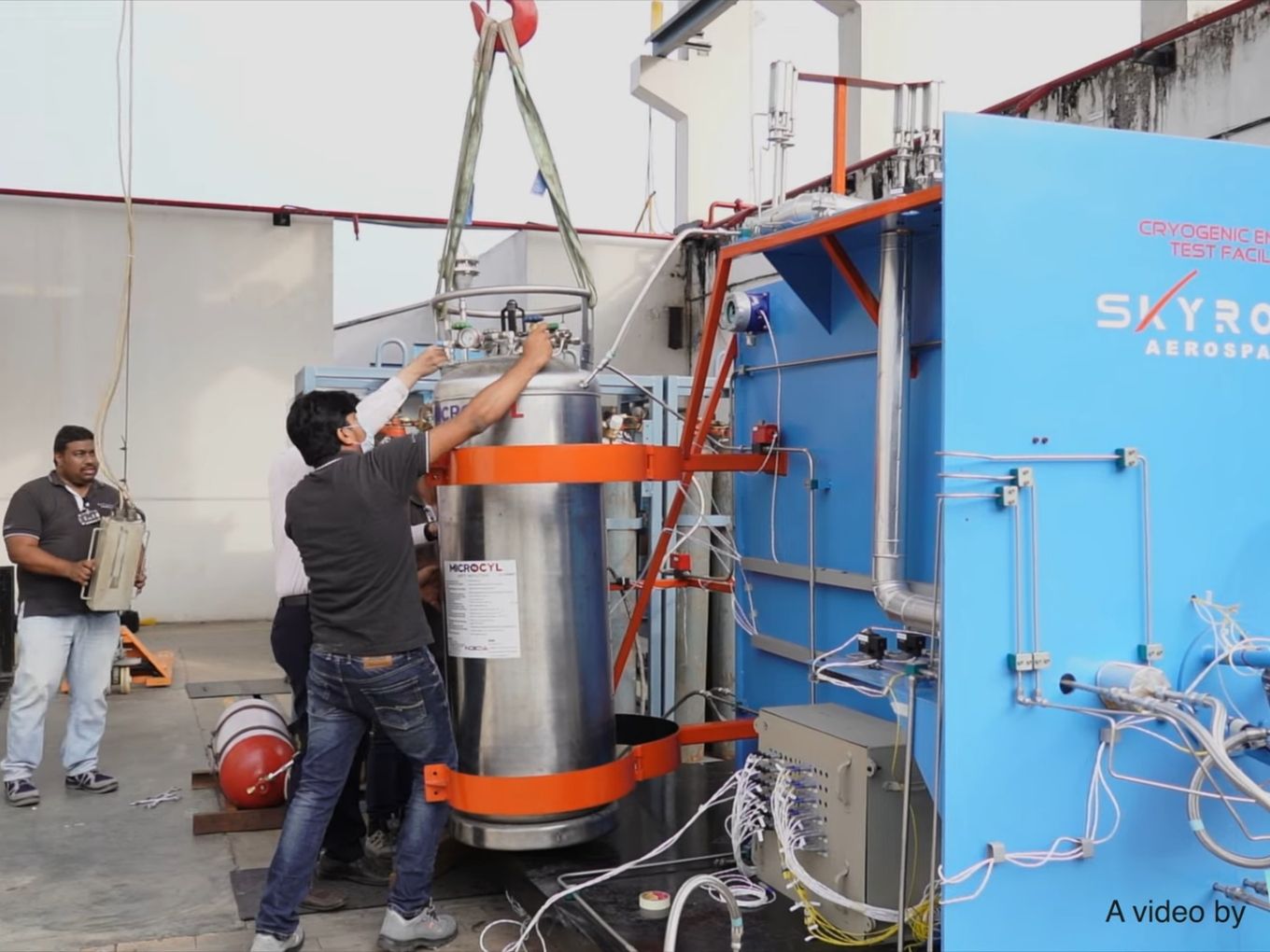Skyroot Aerospace Tests India’s First Privately Developed Cryogenic Rocket
At Market.us Scoop, we strive to bring you the most accurate and up-to-date information by utilizing a variety of resources, including paid and free sources, primary research, and phone interviews. Our data is available to the public free of charge, and we encourage you to use it to inform your personal or business decisions. If you choose to republish our data on your own website, we simply ask that you provide a proper citation or link back to the respective page on Market.us Scoop. We appreciate your support and look forward to continuing to provide valuable insights for our audience.

Hyderabad-based spacetech startup Skyroot Aerospace has tested India’s first privately developed cryogenic rocket—Dhawan 1. Cryogenic engines are rocket propulsion systems that use propellants stored at cryogenic temperatures (less than -150°C). Dhawan 1 runs on liquid natural gas (LNG) and liquid oxygen (LoX).
Founded in 2018 by Pawan Kumar Chandana and Naga Bharat Daka, Skyroot Aerospace is developing some of India’s first privately built space launch vehicles. It indigenously developed a mobile cryogenic engine test stand and tested the engine at a propulsion test facility at Solar Industries India Ltd in Nagpur.
The startup employs more than 100 rocket propulsion engineers and claims to be the first Indian startup to enter into a memorandum of understanding (MoU) with the Indian Space Research Organisation (ISRO) to access its facilities and expertise.
It had earlier closed an $11 Mn Series A funding round led by Greenko group founders. Mukesh Bansal of CureFit, Solar Industries, Neeraj Arora (Ex-WhatsApp CBO), WorldQuant Ventures and Graph Ventures also participated in the round. Skyroot also plans to raise $40m Mn more in funding in subsequent roads.
“The engine uses liquid natural gas (LNG) and liquid oxygen (LoX) at cryogenic temperatures as propellants, which are high performance, low-cost, and green. These are the rocket propellants of the future, and this test makes us one of the very few companies in the world to have successfully demonstrated this technology,” said Pawan Kumar Chandana, cofounder and CEO of Skyroot.
Rocket engines need high mass flow rates of fuel and the oxidiser (LNG and LoX in this case), but storing propellants as pressurised gases will need containers that occupy a lot of space—rendering orbital spaceflight impossible. This is why they are cooled to cryogenic temperatures where the fuel and oxygen are stored in liquid form with high density, simplifying storage on the launch vehicle.
ISRO currently uses its CE-7.5 and CE-20 cryogenic rocket engines, both of which are powered by a mixture of LoX and liquid hydrogen (LH₂). They power the Geosynchronous Satellite Launch Vehicle Mk III which is designed to launch communication satellites into geostationary orbit.
ISRO has a budget of approximately $1.8 Bn, compared to the United States National Aeronautics and Space Administration’s (NASA) $22.7 Bn budget. But the Indian space agency has sent its own Lunar and Mars missions and has a reputation for launching satellites on a tight budget.
Before SpaceX broke the world record by sending 143 payloads to space on one Falcon rocket, India’s Polar Satellite Launch Vehicle (PSLV) held the record by launching 104 satellites in 2017. The PSLV has launched 342 commercial satellites of 34 countries since the 1990s.
As India becomes more and more of an attractive option to organisations looking to launch satellites on a budget, Indian spacetech startups seem to be ready to grab the baton from ISRO.
Last month, spacetech startup Dhruva Space had raised INR 22 Cr led by IAN Fund and Blue Ashva capital. The Hyderabad and Austria-based startup will use the funds raised to launch new offerings, including satellite as a service, space-grade solar arrays, and ground station solutions, aimed at both the international and domestic audience.
The post Skyroot Aerospace Tests India’s First Privately Developed Cryogenic Rocket appeared first on Inc42 Media.
Source Link Skyroot Aerospace Tests India’s First Privately Developed Cryogenic Rocket
Tajammul Pangarkar
Tajammul Pangarkar is a CMO at Prudour Pvt Ltd. Tajammul longstanding experience in the fields of mobile technology and industry research is often reflected in his insightful body of work. His interest lies in understanding tech trends, dissecting mobile applications, and raising general awareness of technical know-how. He frequently contributes to numerous industry-specific magazines and forums. When he’s not ruminating about various happenings in the tech world, he can usually be found indulging in his next favorite interest - table tennis.
Latest from Author
- Air Charter Broker Market to Surge USD 2,496.1 Million by 2033
- Top 10 Android Phone Companies | Best Smartphones in the Market
- AI in Video Surveillance Market to Surge USD 33.0 billion by 2033
- AI in Robotics Market to grow by USD 146.8 billion by 2033
- AI in Insurance Market Projections Point to USD 91 billion by 2033